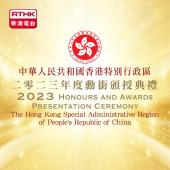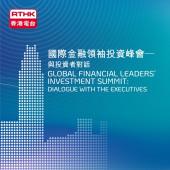 載入中 ...
載入中 ...
返回
Legislator Eunice Yung
2019-03-24
One of the most far-reaching decisions made in a woman's life is the choice between motherhood and work. Nowadays employees usually work long hours on holidays and during unsocial hours to make ends meet. The competitive work culture in Hong Kong also fuels unpaid overtime norms. This makes life a lot harder for working mothers. Family-friendly policies and practices are still uncommon in the government and private enterprises in Hong Kong.
It is widely believed that women's increasing participation in the labour force has translated into delayed childbearing, low fertility rate and an increased demand for childcare and elderly services. Women have to bear double burden of home management, work outside home long working hours and lack of child-care support are some of the contributing factors of the elevated stress levels among Hong Kong women.
So far there is no legal requirement for family-friendly workplace policies to be implemented. In Hong Kong, the Labour Department and the Women's Commission examine and seek to promote family-friendly employment policies and practises: including special leaves, such as marital leave, parental leave and compassionate leave; flexible work arrangement such as five-day work week, remote work from home. Living support such as medical protection, child care services, counselling service on stress and lactation rooms in the workplace to facilitate breastfeeding for working mothers. There is no statutory right to flexible work arrangements, nor there is statutory provision of nursing break at workplace.
Although the Chief Executive Carrie Lam proposed a number of women-friendly policies in her 2018 policy address, including more children facilities, longer leave for new parents and that maternity leave period is extended from 10 to 14 weeks. Despite these improvements, it is simply disappointing that Hong Kong's maternity and paternity leave are among the shortest in Asia.
There are around 60,000 newborns in Hong Kong every year, yet there are only 700 quotas in the current subsidized independent children center. The Chief Executive pledged to strengthen the services by increasing the child care center places, enhancing the existing manning ratios for qualified child care workers, increasing the level of subsidy for child care center services etc. Even if the number of services has increased, it is still miles away from providing an adequate number of places for those 0-2 age.
I have urged the government to increase the number of places and spaces for welfare services especially in densely-populated area, where demand for welfare services is acute. The government now plans to use HK$20 billion to purchase land for around 60 private properties to house over 130 new welfare facilities including day childcare centers, neighbourhood elderly centers and on-site pre-school rehabilitation services. I believe this cannot help to relieve the severe shortage of venues in the long term as it is still very difficult to find favourable spaces in densely populated areas in Hong Kong. The government should provide better planning and management of district facilities by building municipal complex which includes welfare and community facilities, new markets, libraries, nurseries, child care centers, care and attentiojn homes for the elderly, carparks etc, so as to provide one-stop services for the residents.
I am of the view that Hong Kong is urgently in need of stronger infrastructural support to promote and develop supporting measures for family and parenting. The government needs to consider developing a well-defined set of family policies. The current policies on families and parental education are nothing but scattered and fragmented among different policy bureau. There is a need to assign a lead policy bureau to steer the course of the development of relevant supporting policies.
Family-friendly environment policies can take many forms, companies need to consider looking beyond the basics if they want to impress their workers, which by helping employees to balance their work and family lives, would eventually bring benefits to both employers and employees, and in turn resulting in improved morale and enhanced working relationship.
Companies are encouraged to provide onsite childcare facilities that employ well-trained staff to alleviate frustrations from those parents who need to take their children to babysitting and day care services. However, there could be limitations for SMEs being more responsive to adopting new measures regarding marital leave, family leave and parental leave. The government should consider subsidizing SMEs in instituting family-friendly measures or supporting SMEs to organize activities, programs or family and parenting education for their employees and their families. Therefore, the government is indeed in a much better position to take the lead and set the precedence.
While parents play a vital role in the upbringing of their children, it does make it easier for all parents if employers, parents and government can work together. By supporting each other, we can make a difference in contributing to the overall well-being of Hong Kong and our next generation.
It is widely believed that women's increasing participation in the labour force has translated into delayed childbearing, low fertility rate and an increased demand for childcare and elderly services. Women have to bear double burden of home management, work outside home long working hours and lack of child-care support are some of the contributing factors of the elevated stress levels among Hong Kong women.
So far there is no legal requirement for family-friendly workplace policies to be implemented. In Hong Kong, the Labour Department and the Women's Commission examine and seek to promote family-friendly employment policies and practises: including special leaves, such as marital leave, parental leave and compassionate leave; flexible work arrangement such as five-day work week, remote work from home. Living support such as medical protection, child care services, counselling service on stress and lactation rooms in the workplace to facilitate breastfeeding for working mothers. There is no statutory right to flexible work arrangements, nor there is statutory provision of nursing break at workplace.
Although the Chief Executive Carrie Lam proposed a number of women-friendly policies in her 2018 policy address, including more children facilities, longer leave for new parents and that maternity leave period is extended from 10 to 14 weeks. Despite these improvements, it is simply disappointing that Hong Kong's maternity and paternity leave are among the shortest in Asia.
There are around 60,000 newborns in Hong Kong every year, yet there are only 700 quotas in the current subsidized independent children center. The Chief Executive pledged to strengthen the services by increasing the child care center places, enhancing the existing manning ratios for qualified child care workers, increasing the level of subsidy for child care center services etc. Even if the number of services has increased, it is still miles away from providing an adequate number of places for those 0-2 age.
I have urged the government to increase the number of places and spaces for welfare services especially in densely-populated area, where demand for welfare services is acute. The government now plans to use HK$20 billion to purchase land for around 60 private properties to house over 130 new welfare facilities including day childcare centers, neighbourhood elderly centers and on-site pre-school rehabilitation services. I believe this cannot help to relieve the severe shortage of venues in the long term as it is still very difficult to find favourable spaces in densely populated areas in Hong Kong. The government should provide better planning and management of district facilities by building municipal complex which includes welfare and community facilities, new markets, libraries, nurseries, child care centers, care and attentiojn homes for the elderly, carparks etc, so as to provide one-stop services for the residents.
I am of the view that Hong Kong is urgently in need of stronger infrastructural support to promote and develop supporting measures for family and parenting. The government needs to consider developing a well-defined set of family policies. The current policies on families and parental education are nothing but scattered and fragmented among different policy bureau. There is a need to assign a lead policy bureau to steer the course of the development of relevant supporting policies.
Family-friendly environment policies can take many forms, companies need to consider looking beyond the basics if they want to impress their workers, which by helping employees to balance their work and family lives, would eventually bring benefits to both employers and employees, and in turn resulting in improved morale and enhanced working relationship.
Companies are encouraged to provide onsite childcare facilities that employ well-trained staff to alleviate frustrations from those parents who need to take their children to babysitting and day care services. However, there could be limitations for SMEs being more responsive to adopting new measures regarding marital leave, family leave and parental leave. The government should consider subsidizing SMEs in instituting family-friendly measures or supporting SMEs to organize activities, programs or family and parenting education for their employees and their families. Therefore, the government is indeed in a much better position to take the lead and set the precedence.
While parents play a vital role in the upbringing of their children, it does make it easier for all parents if employers, parents and government can work together. By supporting each other, we can make a difference in contributing to the overall well-being of Hong Kong and our next generation.
Politicians and public figures from a range of backgrounds take turns to have their say on important matters of the day in this personal view programme.
Catch it live: Sunday 8:15am - 8:25am
Podcast: Updated weekly and available after broadcast.












